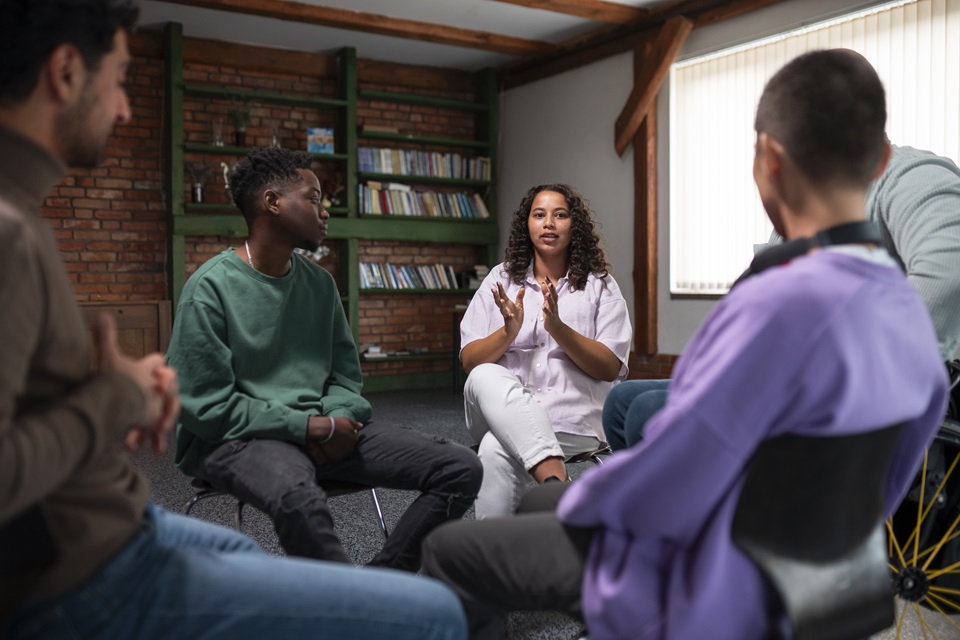Addiction is a complex disease that affects millions of people in the US. Whether it be alcohol, illicit drugs, prescription medications, or behaviors like gambling, addiction can take hold and feel impossible to overcome. The good news is that with treatment and support, addiction can be managed successfully. Here are ten tips to help you or your loved one on the road to recovery from addiction.
Table of Contents
Tip 1: Seek Professional Help
The first step is recognizing there is a problem and reaching out for professional help from doctors, therapists, and treatment centers. They can provide medical care, counselling, support groups and other services to help you safely detox and learn skills to maintain sobriety. Don’t try to tackle it alone.
Tip 2: Consider Medication
Certain medications can help curb cravings, ease withdrawal symptoms, and prevent relapse. Talk to your doctor about medication options to support your recovery plan. Some common options include naltrexone, acamprosate, and disulfiram for alcohol addiction.
Tip 3: Attend Support Groups
Peer support groups like Alcoholics Anonymous or Narcotics Anonymous provide invaluable support from others going through the same struggles. Having a sponsor and accountability partner helps many stay on track.
Tip 4: Address Underlying Issues
Often, addiction stems from or leads to other physical or mental health issues like depression, trauma, or chronic pain. Seeking treatment through counseling, therapy, and medication for underlying issues can help manage addiction more successfully.
Tip 5: Create A Recovery Routine
Establish a daily routine that supports recovery, such as exercising, eating healthy meals, journaling, meditating, or attending recovery meetings. Having structure and positive habits boosts mental health and prevents relapse.
Tip 6: Avoid Triggers
Identify people, places, or things that trigger substance use and avoid them, especially in early recovery. This may mean changing jobs, friends, or housing while you gain stability.
Tip 7: Develop Healthy Coping Skills
When cravings hit, have healthy coping skills ready, like calling a sponsor, exercising, engaging in a hobby, or taking a walk. This helps you ride out the urge without giving in. The more you resist, the easier it gets.
Tip 8: Consider Inpatient Treatment
Residential inpatient treatment involves staying at a facility while undergoing intensive treatment for several weeks or months. Here’s an overview of residential inpatient treatment:
- A residential facility provides a safe, substance-free environment to focus fully on recovery without distractions. You reside at the facility full-time.
- Treatment utilizes a combination of detoxification, therapy, counseling, group support, education, and relapse prevention techniques.
- Medical care and medication address any physical and mental health issues exacerbating addiction.
- Individual and group therapy can help identify triggers, teach coping skills, and change addictive behaviors.
- Aftercare planning assists you in transitioning back to normal life in recovery.
Tip 9: Engage Family Support
Open communication and establishing boundaries with family members that are supportive of recovery can make a significant difference. Their encouragement through your ups and downs is invaluable. But limit contact with toxic influences.
Tip 10: Stay Vigilant With Relapse Prevention
Relapse is common when treating addiction. Have a plan to get back on track if you do slip without letting guilt or shame derail your progress. Stay vigilant with recovery routines and support systems.
The road to recovering from addiction has challenges, but many resources exist to help. The most important first step is getting professional help. Combining therapies, support groups, medications, and lifestyle changes tailored to your needs provides the best chance for achieving sobriety over the long term.



